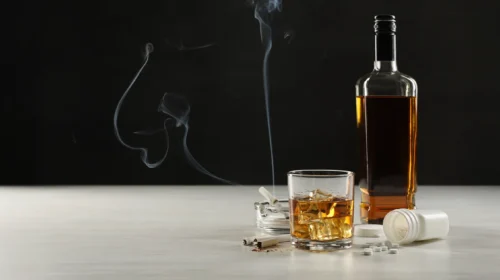“Progress is the word that charms their ears and stirs their hearts.” – Woodrow Wilson
Defining Progress and Growth
What is the reasoning behind making resolutions? Why do we set such large goals for ourselves to achieve? Regardless of the resolution, they are almost always made with good intentions because the focus of every resolution is progress.
But how do we define progress? People often argue about what progress means. Because progress is such an abstract concept, many people’s definitions clash. Some say that what others regard as progress is not progress at all.
Some people believe that progress must relate to their ideas of a perfect world or version of themselves. To us here at Recovery Unplugged, progress is making a real effort to be a better person. Even small actions can result from big progress, even if that means asking for help.
However, for those suffering from addiction, just making a resolution isn’t progress enough. For people struggling with substance use disorder (SUD), resolutions to get clean and sober are made throughout the year.
Taking Steps Towards Living Clean and Sober
Whether a New Year’s resolution or not, the first step towards living clean and sober is always the hardest. Anyone taking the first step towards getting help should feel proud of themselves. Asking for help is the first step towards progress and the goal of living in recovery.
Setting and achieving goals play an enormous part in recovery. Once a person learns their purpose, they find power in themselves and their quest to defeat drug or alcohol addiction.
Setting goals can be a motivating factor for a person attempting recovery to give up an addiction, but action is essential to realize these goals. Without action, resolutions and goals are little more than voiced ideals we never fulfill. It’s easy to say we want something– it’s impressive when we go out and get it.
Setting SMART and Achievable Goals
The best way to follow through with plans is to set “SMART” goals. SMART is an acronym created to help make a guide while setting objectives. These can help with both personal and professional growth, and with setting goals and deciding how to achieve them.
- Specific – target a specific area for improvement. To accomplish this goal, you must know exactly what you will do to grow.
- Measurable – ensure you can measure or at least follow an indicator of progress. If you can’t set and achieve these goals in a measurable way, will you follow through?
- Attainable – assuring that an end can be achieved or attained. Setting goals that are realistic and possible is important. Nobody is going to actively pursue a goal they believe is impossible.
- Relevant – Is this goal directly impacting your life at this time? Is it relevant to effectively achieving your long-term goals?
- Time-related – specify when the result(s) can be achieved and if that’s a reasonable time limit. If you aren’t setting deadlines for yourself to achieve something, it might not happen.
Once the individual has started their journey into recovery, it’s important that they continue setting goals for themselves. Getting sober is only the beginning of the journey. Whether setting smaller goals and objectives or sticking to a bigger plan, you can achieve it.
Those struggling with SUD will need to keep developing their potential to achieve these goals. It might be hard, but it’s possible to find a satisfying life away from substance abuse.
Is There a Right Time for Setting Resolutions?
In short, the answer is no. We’ve gotten accustomed to New Year’s resolutions being the only resolutions that matter. This could not be further from the truth. Every day you wake up is a good day to set new goals and commit to new resolutions.
If you’ve already found challenges in maintaining your New Year’s resolution, you’re not alone. Maybe you’re in treatment and finding it hard to stay clean. The good news is, you’re not the only one, and there are people who can give you help and support.
While SMART goals are helpful, overcoming addiction often requires additional support beyond self-guided efforts. Make sure you surround yourself with people committed to helping you set goals and stick to them. You won’t regret it.
As hard as it might be right now, stick to your goal. Many find that achieving and maintaining a clean and sober life is among their most fulfilling accomplishments.

























